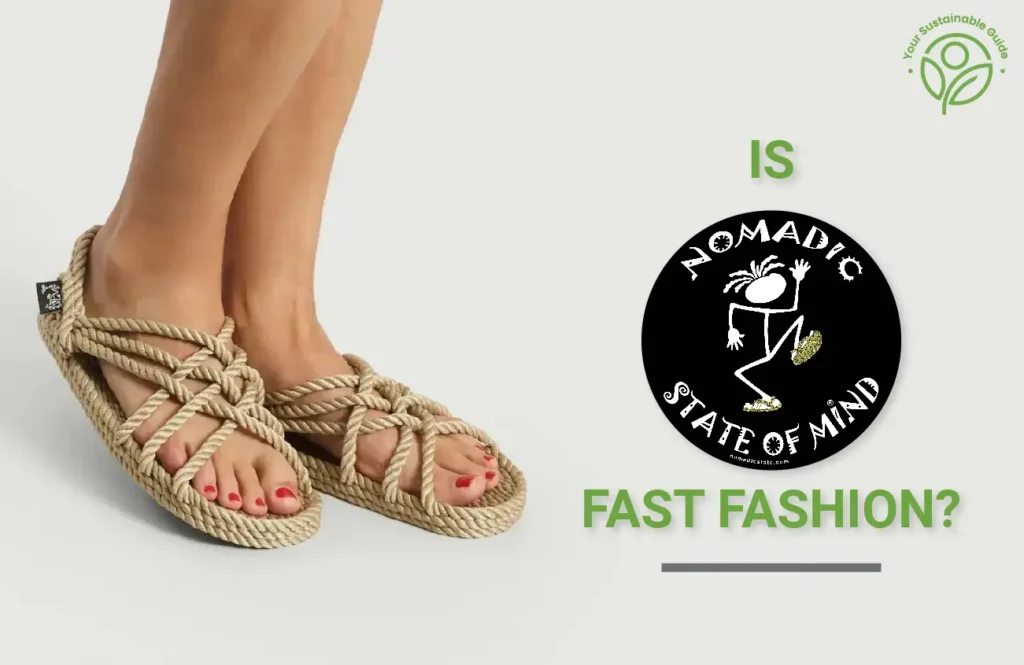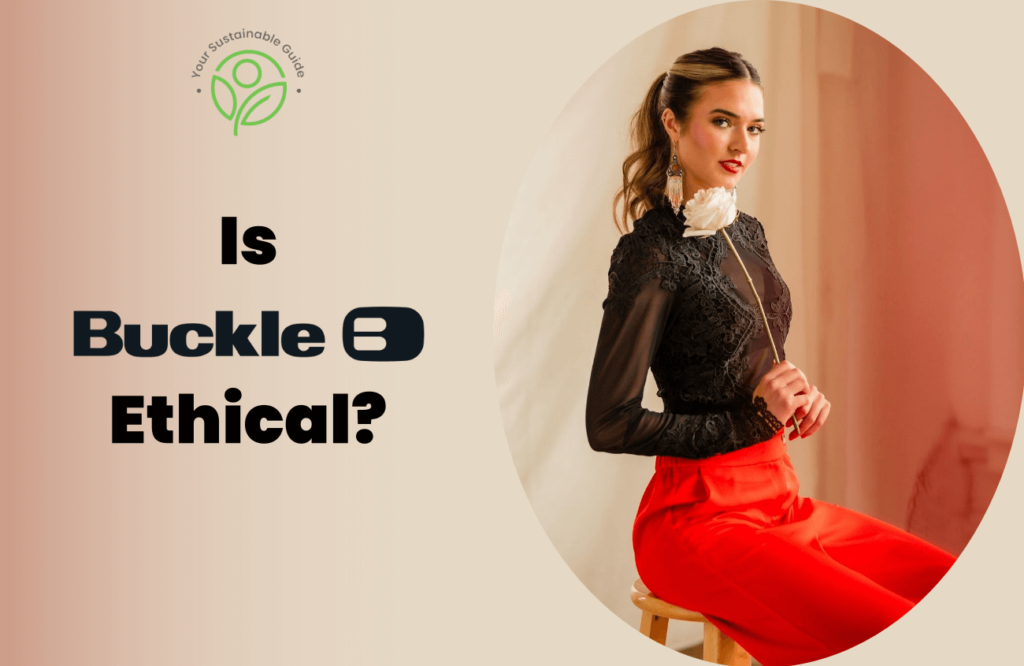If you love the nomad life and wandering around unknown territories, then Nomadic State of Mind has the perfect sandals for your happy feet. Established out of a VW van, it is a grassroots handmade footwear and accessories label ignited by the founder’s love for nature and music. But while the company claims to be a responsible business, is it being truly ethical and sustainable? Do its workers receive fair wages? Or is Nomadic State of Mind another fast fashion brand in the making?
Nomadic State of Mind has come a long way since its van days, but one thing remained constant. Its ethos that “If it is done right in the beginning, it will last a long time.” In today’s feature, let’s navigate the brand’s sustainability and ethical endeavors.

Is Nomadic State of Mind Fast Fashion?
No, Nomadic State of Mind is not a fast fashion brand. It offers compact collections of fabulous sandals, organic apparel, home goods and accessories that are not trend-focussed. Everything at this brand is designed with nature and music fests in mind. So, they particularly appeal to consumers who are nature lovers, festival-attending hippies, and wanderers.
Nomadic State of Mind is particularly famous for its fun rope sandals. It produces items in small batches, unlike traditional fast fashion brands that release hundreds of trendy styles every week. In terms of pricing, its products come at reasonable prices. Nothing is as cheap as most fast fashion items because they are handmade items.
Not only that, but the label also advocates for ethical fashion. Plus, it uses lower-impact materials like organic cotton and recycled materials for its merchandise. These are the exact reasons that make Nomadic State of Mind a responsible small business.

Is Nomadic State of Mind Ethical?
Yes, Nomadic State of Mind is ethical. It doesn’t operate under a complex and large production level. Instead, it works with a team of 17 rope artisans to handcraft beautiful sandals and other fashion items, providing them with employment opportunities.
Labor Practices
Nomadic State of Mind doesn’t have a Suppliers’ Code of Conduct. That is acceptable in some way as it works with small communities, and manufacturing takes place in limited quantities. Its officials regularly visit the suppliers, showing a dedication to maintaining a strong connection with factories and protecting workers’ rights. This continuous supervision is a crucial measure to enhance labor conditions in the brand’s supply chain.
Again, Nomadic State of Mind understands that the sandal-making process is time-consuming and requires extensive training. That’s why they claim to ensure that every craftsman receives fair paychecks. It strives to create decent livelihoods for underprivileged people by teaching them the art of handmade rope sandals. And when sales go down for flip-flop style sandals during winter, it engages them in making other fashion and home accessories. This practice substantially helps the working communities with a stable income throughout the year.
However, with the majority of Nomadic State of Mind’s production taking place in Nicaragua, it is vital for the brand to maintain transparency. That’s because Nicaragua has an extreme risk for labor abuse as finding employment is difficult in this country. And brands that use sweatshops turn to such countries preying on underserved people.
While Nomadic State of Mind traces some parts of its supply chain, including the final production stage, it’s unclear if it abides by fair trade standards. Ensuring fair wages and a secure working environment is vital from an ethical standpoint in the fashion industry.
Sourcing Practices
Currently, a small community in Nicaragua is crafting many of Nomadic State of Mind’s rope sandals in an out-of-work coffee farm. It also works with global distributors for raw material sourcing. In 2002, the brand’s founder, Chris, taught the Nicaraguan community how to make sandals, aiming to provide jobs and income. Emphasizing a commitment to ethical fashion, fair trade agreements were established with the community. And Nomadic State of Mind ensured quality products by helping them master the shoemaking technique.
Nomadic State of Mind’s intentions to help marginalized communities is truly commendable. But it would be wise if it lists out exact locations or gives a sneak peek at its production practices. These details are necessary to assess if workers’ well-being is prioritized.
Child Labor
No reports of child labor have surfaced around Nomadic State of Mind. While the label definitely needs to be more clear about its production processes, the possibility of employing minors is minimal. That’s because the founder has a background in social work and extensive experience with environmental groups. He believes in prioritizing these values in the company’s manufacturing methods.
Concerns about child labor in the fashion industry are real, which is why brands need to become transparent about their supply chain. Nomadic State of Mind doesn’t declare its policies around child labor. But we hope the brand will make a note and do the necessities to trace its supply chain.
Overall Rating: 3
Is Nomadic State of Mind Cruelty Free?
Nomadic State of Mind doesn’t have formal animal welfare policies. But the good news is, it doesn’t use any sort of animal-derived materials in its vegan sandals and other products. So, when you shop from them, you’re guaranteed to receive cruelty-free shoes.
Overall Rating: 5

Is Nomadic State of Mind Sustainable?
Yes, Nomadic State of Mind is sustainable. It neither produces volumes of merchandise inspired by trends nor undertakes breakneck manufacturing processes. The brand uses a good proportion of eco-friendly materials in each of its sustainable fashion items to lower its climate impact.
Nomadic State of Mind’s signature durable rope sandals are crafted from recycled polypropylene cord. These rope shoes turn out to be quite sturdy and comfy, minimizing the frequent need to replace them. The ropes reportedly have a colorfast feature, which helps in curating awesome designs and lightweight sandals. Moreover, as its bunch of sandals are 100% handmade, its production stages don’t result in CO2 emissions.
Another green initiative they’ve taken to lower the environmental impact of fast fashion is that no excess scraps are left behind. While the culture around Central America is to discard or burn out scraps, this brand finds ways to utilize them. It skillfully repurposes leftover textile offcuts to create various merchandise like water bottle carriers, rugs, bags, etc. This approach not only raises awareness about avoiding manufacturing waste but also reduces their carbon footprint.
To further limit its environmental impact, Nomadic State of Mind avoids packaging waste by eliminating shoe boxes. All items are simply shipped in USPS mail bags, and shoes are tied together with a string.
Overall Rating: 4







